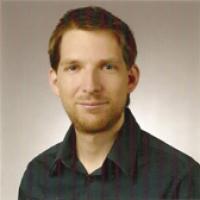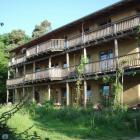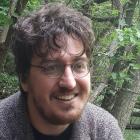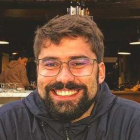Sieben Linden is considered a classical example of an ecovillage. Within Europe, this project is especially rare given that today, it is almost impossible to establish a village anew. Although the cooperative formally belongs to the town of Poppau (municipality of Beetzendorf), its founders were able to construct the village “independent from pre-existing structures.“
The idea for this specific ecovillage originated in 1980 in the course of the anti-nuclear resistance at Gorleben, where an ad-hoc village emerged [“Hüttendorf” der “Freien Republik Wendland”] which lasted for 33 days - but left an inspirational mark for several people who then tried to achieve something similar, more lasting. Comparable ecovillage-ideas started to develop in the 1970s in the USA and Denmark at the time, which finally led to the emergence of the Global Ecovillage Network (GEN) in the 1990s – the update of the old dream to live in harmony with man and nature. It took until 1997, until pioneers in trailers moved into today’s site of Sieben Linden. Since its foundation, the area has increased from 25 to 80 hectares and has attracted more than 120 residents. The habitants are mostly organized into “neighborhoods” that live in a total of eight straw and clay buildings, for which the ecovillage is famous. The village plans to expand the total number of residents from 250 to 300—thereby maintaining a not too complex structure.
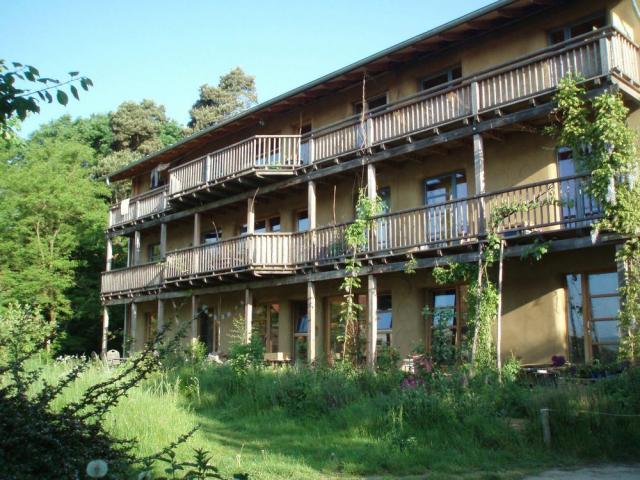
The ‘Strohpolis’ house in the ecovillage of Sieben Linden - Europe’s largest house made out of bales of straw
The ‘Strohpolis’ house in the ecovillage of Sieben Linden - Europe’s largest house made out of bales of straw
Photo by Freundeskreis Ökodorf e.V.
Click here to view Sieben Linden source.
 This work is licensed under a Creative Commons Attribution-NonCommercial-ShareAlike 3.0 Unported License.
This work is licensed under a Creative Commons Attribution-NonCommercial-ShareAlike 3.0 Unported License.
Sieben Linden sees itself as an example and experiment in the development of an alternative and sustainable way of life. Aside from sociological and ecological aspects, such as a high degree of self-sufficiency and sustainable building practices, the concept of an (intentional) “community” lies at the center of this project. The residents rely on diverse democratic decision-making practices, in which the wish for consensus still pervades. Its motto is: “Unity in diversity.” - although diversity in this case still means mostly white middle-class people.
According to a study conducted by the University of Kassel, Sieben Linden’s carbon dioxide footprint is less than one-third of the German average. On several occasions, the ecovillage has been distinguished for its efforts towards sustainability, and the media regularly report on the village’s activities. The stream of national and international visitors to the site represents an important financial basis for the village. Basically, the economic sustainability of the ecovillage depends very much on its status as a showcase for sustainability. The inclusion in the region is less influential.
View of the ecovillage Sieben Linden
View of the ecovillage Sieben Linden
2008 Marcos Molz
Click here to view Wikimedia source.
 This work is licensed under a Creative Commons Attribution-NonCommercial-ShareAlike 3.0 Unported License.
This work is licensed under a Creative Commons Attribution-NonCommercial-ShareAlike 3.0 Unported License.
Sieben Linden is an active member of the GEN, and in the past few years, the village has engaged in an increasing number of cooperative activities with other initiatives. Together, these projects demonstrate the possibility of an ecologically sustainable lifestyle without reducing the quality of life in the context of a Western society. Thus, Sieben Linden represents a specific “Culture of Sustainability” which, however, depends on strong ties to the rest of society in both social and economic terms.
How to cite
Andreas, Marcus. “The Ecovillage of Sieben Linden.” Environment & Society Portal, Arcadia (2012), no. 15. Rachel Carson Center for Environment and Society. https://doi.org/10.5282/rcc/3917.
ISSN 2199-3408
Environment & Society Portal, Arcadia
 This work is licensed under a Creative Commons Attribution-NonCommercial-ShareAlike 3.0 Unported License.
This work is licensed under a Creative Commons Attribution-NonCommercial-ShareAlike 3.0 Unported License.
2012 Marcus Andreas
This refers only to the text and does not include any image rights.
Please click on the images to view their individual rights status.
- Andreas, Marcus and Felix Wagner (eds.) "Realizing Utopia: Ecovillage Endeavors and Academic Approaches." Special issue, RCC Perspectives 8 (2012).
- Bates, Albert. "Ecovillages". In K. Christensen & D. Levinson (Eds.): Encyclopedia of community. From the village to the virtual world, Vol. 2. London: Sage, 2003.
- Dawson, Jonathan. Ecovillages: New Frontiers for Sustainability. Totnes: Green Books, 2006.
- Freundeskreis Ökodorf e.V. Sieben Linden. Lebensentwurf und Realität. Visionen, Alltag, Gemeinschaft, Ökologie, Ökonomie und Spiritualität. Eine Textsammlung. Ökodorf Sieben Linden, Poppau: Freundeskreis Ökodorf e.V., 2007.
- Simon, Karl-Heinz et al. Zusammenfassender Endbericht zum Vorhaben »Gemeinschaftliche Lebens- und Wirtschaftsweisen und ihre Umweltrelavanz«. Kassel: Universität Kassel, 2004.


